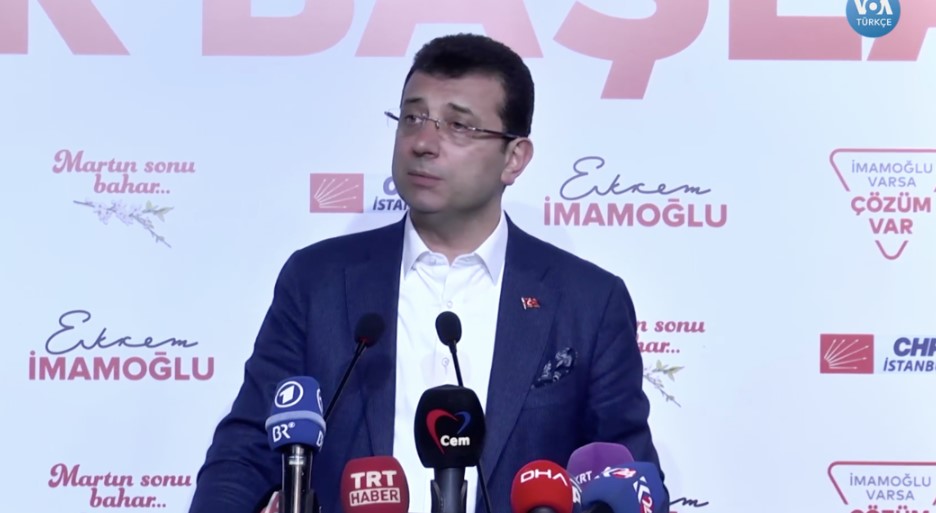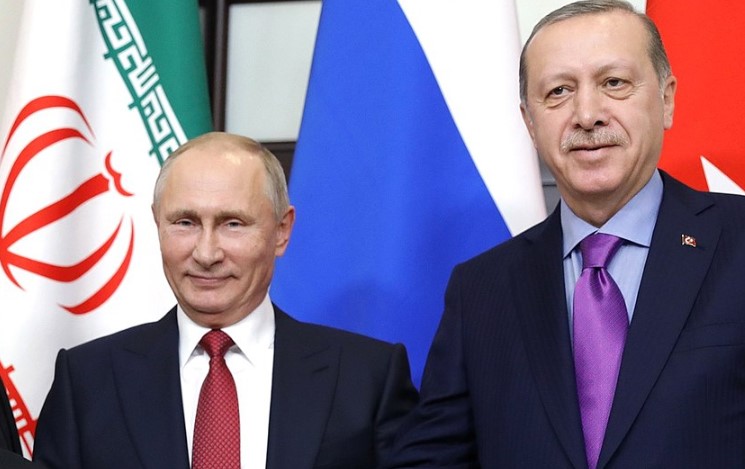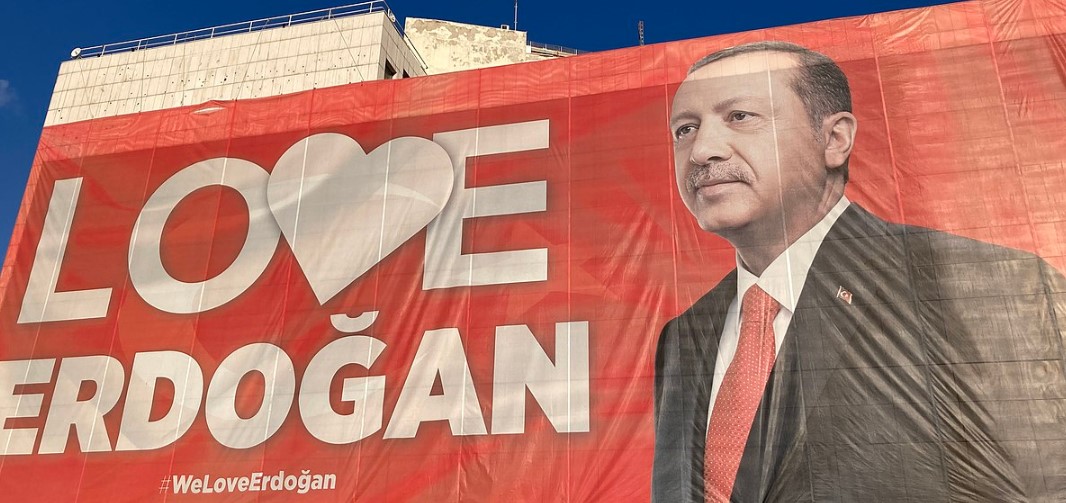By John Pickard
The election of Erdogan as president for another five years is a blow to the working-class movement in Turkey. He will continue along the trajectory he has already set – moving the country away from democratic freedoms established over a hundred years. But in so doing, he will also build up an explosive powder-keg of unrest for the future.
Erdogan’s election, by 52%, in last Sunday’s second round, was primarily based on the rural hinterland of Turkey and those sections of the population more profoundly steeped in Islamic traditions and nationalism. It actually stands as a criticism of previous ‘secular’ governments that Muslims who cling most strongly to their faith, saw Erdogan as something of a ‘saviour’, by allowing them to wear Muslim dress in public places, where it had previously been banned. Despite a crushing economic crisis, Erdogan played above all on traditional religion and national pride in his central claim to “make Turkey great again”.
Even before Erdogan gets to work on new restrictive policies, the steps he has already taken to strangle any opposition mean that by the (current) standards of Western ‘democracies’, Turkey barely counts as a democracy at all.
Turkey imprisons hundreds of journalists
Erdogan’s most significant advantage in this election was his control of 90 per cent of the mass media. State television, the most common source of news for most Turks, relentlessly praised the president and ignored the campaign of his election rival. According to a report in the Washington Post (May 19), “In April, state TV spent 32 hours on coverage of Erdogan versus 32 minutes for his opponent”.
Of all ‘Western’ governments, Turkey imprisons the most journalists. (The Guardian, May 3). In only one year, 2020, The Washington Post reports (May 19), the government prosecuted more than 30,000 criminal cases of “insulting the president…Erdogan’s government has systematically taken over ostensibly independent institutions, including courts and the body that controls elections.”
Erdogan has also passed laws to put tight controls on social media. Over the election weekend, the government asked Twitter to block the accounts of a dozen oppositions figures – a particularly important step, given that there is a strong demographic imbalance against him, with younger, more IT-savvy voters strongly supporting the opposition. There were already precedents for this, with the government completely blocking Twitter for a while after a wave of criticism on the platform over Erdogan’s mishandling of the earthquake relief programme.
His blocking of his opponents has not stopped Erdogan himself using media when it suited him. He described his opponents as being supported by “terrorists” and in campaign rallies he showed videos – which he knew to be fake – showing Kurdish PKK leaders singing the opposition’s campaign song. “So what, if it is a fake?” Erdogan said, when he was challenged.
Istanbul mayor banned from standing in election
Erdogan might have had a more formidable candidate against him, in the shape of Ekrem Imamoglu, the relatively young, charismatic and popular mayor of Istanbul. But in a blatantly political manoeuvre, he was barred from standing. When Imamoglu was first elected mayor of Turkey’s biggest city, the government’s tame Electoral Council ordered a rerun of the election. Imamoglu was elected a second time, with an even bigger majority, only to be then charged with “insulting public officials”. Predictably – many judges having been appointed by Erdogan – he was sentenced to three years in prison and although the sentence is now under appeal, he was still barred from political activity, including this election.

In Imamoglu’s absence, the candidate of the combined opposition was 74-year-old Kemal Kilicdaroglu, a colourless bureaucrat with no charisma and little to offer in the way of ‘radical’ policies. He even attempted to win the favour of some of Erdogan’s more backward supporters by aping their xenophobia over Syrian and Iraqi refugees, large numbers of whom have had to seek a safe haven in Turkey. Not that his tilt to the right did him any good: being from the minority Alevi community, a Shia sect, Kilicdaroglu was targeted by Erdogan for his religious beliefs.
Despite a great yearning among many younger Turks for real political change, in reality, there was a very meagre menu on offer from Kilicdaroglu, and under the circumstances, given the huge weight of government propaganda against him, it is something of an accomplishment that 25 million people voted for him at all. What is of greater significance for the future is that the opposition to Erdogan is heavily biased towards the youngest and most economically dynamic sections of the population, particularly in the main cities of Istanbul, the North and Ankara.
It is important from a theoretical standpoint to examine what kind of political leadership Erdogan represents. He could be said to be a modern example of a trend towards Bonapartism. The concept of ‘Bonapartism’ has a long pedigree in Marxist literature and thought, going right back to Marx himself, and clearly the term owes its origin to the French military dictator-turned emperor, Napoleon Bonaparte.
A general phenomenon in the capitalist world
After Marx, and through a hundred years of theoretical analyses and discussions of various states and political leaders, Bonapartism has come to refer to any form of government in which the ruler (often, but not always, a military figure) uses the naked apparatus of the state – the police, the judiciary and the armed forces – independently of political parties and democratic institutions. The state in these circumstances can be used as a battering ram, the essential aim of which is to hold the workers’ movement in check.
Being, as it were, raised ‘above’ society, a Bonapartist state can use its huge power against the workers’ movement, but occasionally, when it is expedient to do so, and to garner a degree of popular support, it can be deployed even against the economic interests of the ruling class. In that sense, the state can be said to ‘balance’ between contending classes beneath it.
Bonapartist leaders often dispense altogether with democratic norms, functioning as military dictatorships, or they resort to referenda, always with a predictable outcome, to ‘validate’ their rule. Although it expresses a high degree of political independence in its own right, a Bonapartist state still rests ultimately on either a privately-owned ‘market’ economy, or a state-owned planned economy. In the case of Turkey it would be clearly the former, with Erdogan resting on the support of the capitalist class.
There isn’t the scope for examination of the issue in detail in this article, but it is worth noting as an aside that on a global scale the growing political and economic crises of capitalism create a tendency in all capitalist countries towards government by right-wing populists. These often have the aim of centralizing political power onto one person, onto one ‘strong’ leader, one executive authority – in other words, towards Bonapartism.
This is a general phenomenon. We can see this process in states like Hungary and Poland, where the presidential powers of populist leaders have been enhanced far beyond anything in Western Europe. It is also true of Modi’s India, where his government has deployed executive powers that no previous Indian ‘democracy’ ever did.
It is a tendency even more apparent in the manoeuvres of the Pakistani government – which is more or less openly pushed by the military – to suppress the opposition PTI party of Imran Khan. It is even evident, at this stage only as a pale shadow, in other Western ‘democracies’ – such as in the dismissive approach of Donald Trump to the established democratic institutions in the USA.
Turkey a ‘rogue’ member of NATO
Erdogan’s government is not yet an out-and-out Bonapartist state. His regime can be said to be ‘a Bonapartist regime with elements of democracy’, or ‘a democratic regime with strong elements of Bonapartism’. At the moment, it is not definitively one or the other, but the trajectory is unmistakably towards Bonapartist government.

Erdogan will seek to strengthen his personal grip on the judiciary, the media and the armed forces in the next five years – unless he is toppled by opposition from below. He can still rely to a degree on mass support, although his party, the AKP, is dwindling. More to the point, there is still a massive movement that stands in opposition to him.
The same tendencies that are evident in the Turkish government’s domestic policy are visible in foreign policy. Erdogan is following a much more assertive and aggressive imperialist policy, at this stage limited to regional ambitions. Not only has the Turkish army occupied parts of northern Syria, but its forces have been deployed in the civil war in Libya. In the conflicts in Nagorno Karabakh, Turkey has openly supported Azerbaijan, ethnically close to Turkey, against Armenia.
Becoming a major power in the Eastern Mediterranean, and potentially in Central Asia, where there are strong ethnic and cultural links, is part of a pattern of policies aimed at re-establishing Turkey’s ‘national pride’. It is a policy that has had some effect on more backward voters in Turkey, battered by economic winds, but offered some compensation in the form of ‘pride’ in a resurgent nation.
On the other hand, NATO strategists in the Pentagon are tearing their hair over Turkey’s foreign policy shifts. The US president, Joe Biden, favoured Kilicdaroglu in these elections, whereas Vladmir Putin support Erdogan. Putin’s support was so overt that Kilicdaroglu even went so far as to ‘warn’ Moscow to stay out of the election. From the point of view of the North Atlantic Alliance, Turkey is something of a rogue state, and Erdogan has managed to balance Turkey’s membership of NATO with tacit support, or at least neutrality, towards Russia in the war in Ukraine.
There will come an economic reckoning
Erdogan is set to be in office for another five years and he will no doubt attempt to consolidate his power base. How much he can get away with, however, is open to question. It depends on the scope and scale of any opposition that develops. Erdogan’s rule may seem solid, but appearances can be deceiving.
At some point in the future, there will be an economic reckoning. The Turkish state is still pretty much bankrupt, with minimal central bank reserves. In the past, it has been shored up by financial aid from Saudi Arabia, Russia and Gulf states. That largesse is not guaranteed in the future.
Turkey is deeply polarised and faced with a crisis in living standards worse than anything in Western Europe. The official rate of inflation might be down, but it is still well over 40% and workers have suffered for years from inflation as high as 70% or 80%.
Workers, including those who supported Erdogan’s party, will find that they cannot buy the necessities of life with national pride. The social weight of Erdogan’s support – in the more conservative rural areas that are less industrially developed – will prove to be less significant than the growing opposition to him in the big cities and the industrial regions in the North.
Speaking to the Financial Times, in one of the regions traditionally supportive of Erdogan, a worker expressed his frustration over what was on offer in the election. “The economy’s getting worse every day…change is needed,” he said. He added that he had little faith in any government that came into office, doubting that they would make a difference. “Not Erdoğan, not Kılıçdaroğlu,” he said, “none of them”.
The question of all questions is how long will it take a working class movement to rise and assert itself to “make a difference”? Despite Erdogan’s apparently sweeping victory, there may not be too long to wait.



